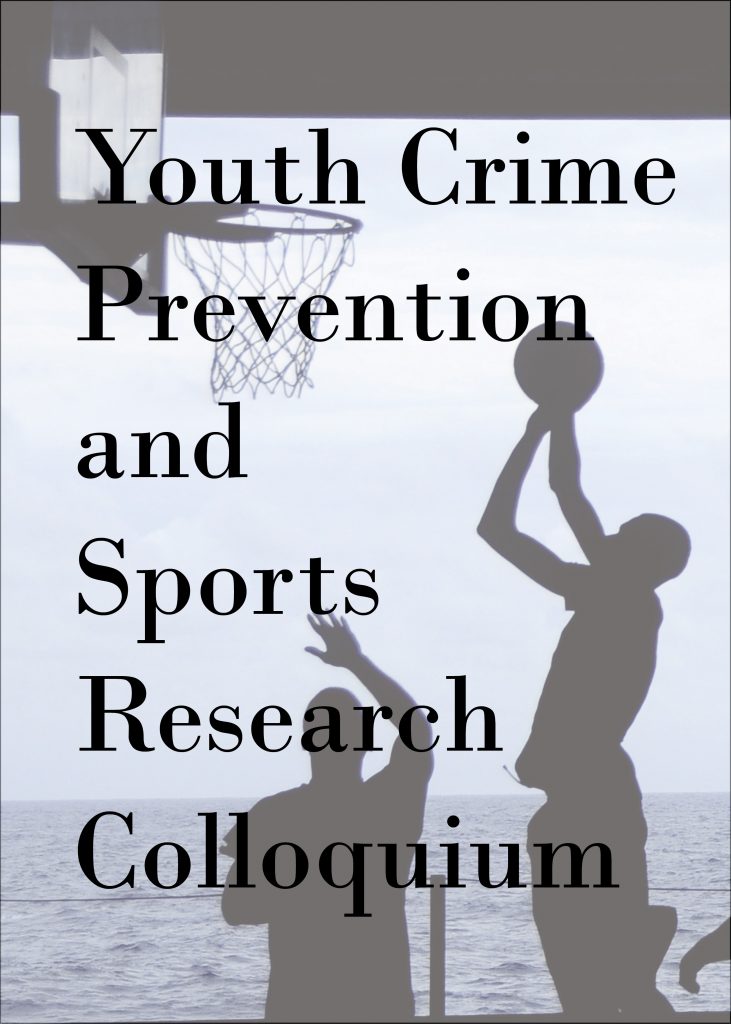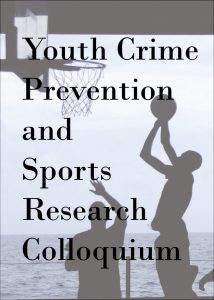 The South Asian Institute hosted the Youth Crime Prevention and Sports Colloquium in partnership with UFV’s Dept. of Kinesiology and the Dept of Criminology and Criminal Justice. The two-day event on November 25 to 26 brought together researchers, scholars, and practitioners to discuss the benefits and drawbacks of sports participation in reducing criminal behaviour. The Colloquium was an extension of recent research under the South Asian Research Fellowship Program and the resulting book (available here) by Prof. Yvon Dandurand and Dr. Jon Heidt.
The South Asian Institute hosted the Youth Crime Prevention and Sports Colloquium in partnership with UFV’s Dept. of Kinesiology and the Dept of Criminology and Criminal Justice. The two-day event on November 25 to 26 brought together researchers, scholars, and practitioners to discuss the benefits and drawbacks of sports participation in reducing criminal behaviour. The Colloquium was an extension of recent research under the South Asian Research Fellowship Program and the resulting book (available here) by Prof. Yvon Dandurand and Dr. Jon Heidt.
The Youth, Crime Prevention and Sports Colloquium sought to bridge the gap in knowledge between scholars interested in sports, youth development, and criminal involvement with practitioners in the field. Topics such as positive youth development were discussed, in which sports could function to recognize youth’s strength, instill good values, build life skills and encourage prosocial behaviour. There is an assumption that engaging in sports might provide alternative routes for youths to desist or avoid engaging in crime. However, Dandurand and Heidt found that current research suggests there is no causal relationship between the two. In fact, certain sports have a problematic culture which can promote criminal behaviour, such as violence and substance misuse.
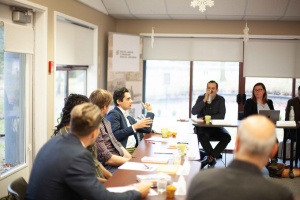 The first day of the Colloquium brought together researchers from across Canada who gathered to share their research on intentionality, developing life skills while playing sports, and understanding sports’ role in crime prevention. Intentionality was emphasized throughout both days and referred to structuring programs and delivering them intentionally to address needs and priorities directly. Sports programs are also considered tools for obtaining and learning transferable life skills, such as critical thinking, problem-solving and self-awareness. Sports programs can be an outlet for at-risk youth who experience trauma to psychological escape from daily life. Sports engagement promotes the development of meaningful connections, which can act as a constraint on crime. Day one concluded with a discussion on relevant research, the potential for future research, and the importance of intentionality and social and personal responsibility.
The first day of the Colloquium brought together researchers from across Canada who gathered to share their research on intentionality, developing life skills while playing sports, and understanding sports’ role in crime prevention. Intentionality was emphasized throughout both days and referred to structuring programs and delivering them intentionally to address needs and priorities directly. Sports programs are also considered tools for obtaining and learning transferable life skills, such as critical thinking, problem-solving and self-awareness. Sports programs can be an outlet for at-risk youth who experience trauma to psychological escape from daily life. Sports engagement promotes the development of meaningful connections, which can act as a constraint on crime. Day one concluded with a discussion on relevant research, the potential for future research, and the importance of intentionality and social and personal responsibility.
 Day two brought together academics and local practitioners to discuss what practices are helpful, what’s currently being implemented, and future implications, for example, sports having a more trauma-informed structure. Practitioners emphasized youth involvement with sports program structuring to address accessibility issues. Day two was also focused on the roles of parents, mentors, and community leaders in facilitating significant relationships with youths who are at risk, fostering an environment of acceptance and inclusion where the youth could feel safe. Day two concluded with a discussion on removing/mitigating normative sports ideals and emphasizing the role of healing and non-violent sports.
Day two brought together academics and local practitioners to discuss what practices are helpful, what’s currently being implemented, and future implications, for example, sports having a more trauma-informed structure. Practitioners emphasized youth involvement with sports program structuring to address accessibility issues. Day two was also focused on the roles of parents, mentors, and community leaders in facilitating significant relationships with youths who are at risk, fostering an environment of acceptance and inclusion where the youth could feel safe. Day two concluded with a discussion on removing/mitigating normative sports ideals and emphasizing the role of healing and non-violent sports.
“This was a great experience for me, and I think for others as well. I talked to several of the Colloquium participants, and they expressed much gratitude to SASI for the opportunity to be involved with this event. The students who attended mentioned that they thought this was a very interesting experience and want to attend more events like these. The practitioners also seemed engaged and excited to be there – this is particularly impressive considering the event was held on Saturday morning.” – Jon Heidt, Associate Professor, UFV.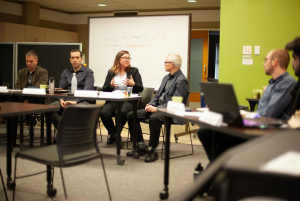
The Colloquium involved various panellists who provided impressive presentations on their designated topic. For a complete list of speakers, please see the program agenda here. The forum was attended by UFV students, faculty, police, and local practitioners from other cities. Bringing together learned scholars and capable practitioners the Colloquium was informative, organized, and a great way to bridge seemingly different professional fields.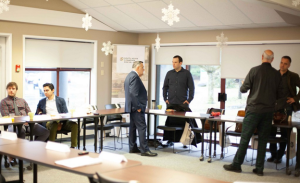
“What a great opportunity for SASI to bring together both research scholars and practitioners in one room to spend meaningful and thoughtful time to better understand the implications of sports programs, youth and crime prevention. The visioning work and future research will benefit all Canadians as new ideas came to light and new approaches to research were undertaken – Satwinder Bains, Director SASI.
To enjoy photos of the events, please visit https://flic.kr/s/aHBqjAh446
To see a short report on Improving the Positive Impact of Sport-based Programs on Youth Development and Crime Prevention, please click here.

